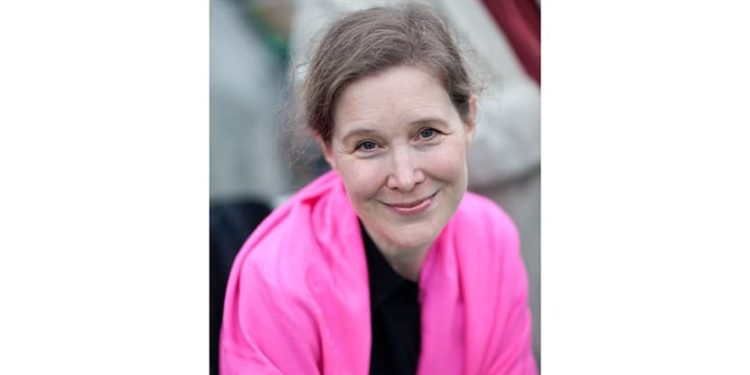It has to be one of the most extraordinary stories of lockdown — how Tom Hanks’s assistant Sooki Raphael, undergoing treatment for recurrent pancreatic cancer, came to be living in the basement of the novelist Ann Patchett and her husband Dr Karl VanDevender.
How it happened is told in the title story of These Precious Days, Patchett’s second collection of essays. Asked to endorse Hanks’s short story collection, Uncommon Type, and then to interview him on stage during his tour, Patchett first meets Sooki in the wings of a Washington theater. Hanks, by way of reciprocation, agrees to do the audio recording of Patchett’s eighth novel, The Dutch House, and a “sporadic email exchange” between Patchett and Sooki develops into a friendship. “Ours was an ephemeral connection common to the modern world,” writes Patchett. “Except it was Sooki, and I liked her very much.”
When it becomes difficult for Sooki to find a hospital to deliver the clinical trial and chemo she needs, Patchett and VanDevender discover that it can be done at the hospital in their home town, Nashville. Sooki agrees to stay for a few nights. Then Covid strikes; 2020 is all but canceled and it’s impossible for Sooki to go home. She’s there in Patchett’s basement for the rest of lockdown.
It’s undeniable that money and privilege are a great help. Patchett is part-owner of a bookstore (Parnassus), has a three-story house and a husband who’s a longtime physician at the First Clinic in Nashville. (He also flies a Cessna plane, which comes in handy when Sooki’s mother is taken into hospital in New York.) But also undeniable are Patchett’s generosity of spirit, compassion and gift for friendship. (Her 2004 book, Truth and Beauty, describes a seventeen-year friendship with the brilliant but demanding writer, Lucy Grealy, also a cancer victim.)
In the basement apartment — jokingly called “the VanDevender Home for Wayward Girls” — Sooki does what she’s wanted to do all her life: paint. Sookie paints and paints and paints. (These Precious Days has a portrait by her of Patchett’s dog Sparky on the cover). Patchett writes.
As lockdown continues, the two women practice kundalini yoga and meditation twice a day. They take magic mushrooms together (a good experience for Sooki, dreadful for Ann). “Sooki and I needed the same thing: to find someone who could see us as our best and most complete selves,” writes Patchett. What could have been a disastrous time becomes, for both of them, a cherished opportunity. These are the “precious days” of the title. An epilogue describes how before Sooki’s death they manage a day on the beach and a celebratory exhibition of her paintings.
In an essay describing why she decided not to have children (“There Are No Children Here”) Patchett writes that she had to make a choice between writing and children and lacked the energy for both. She certainly isn’t short of abundant care for others, and by the time you get to the end of this collection it’s hard not to feel glad she saved her energy for writing.
As in Patchett’s first collection of essays, This Is the Story of a Happy Marriage, most of these pieces have been previously published in magazines (the New Yorker, Washington Post, Harper’s) and are a blend of literature and memoir. Patchett is so 100 percent a writer that you get the feeling that her life doesn’t happen unless she writes about it. In this collection are memoir pieces about her three fathers, one biological, two step — which somehow makes you think of Goldilocks and the three bears; about a year of no shopping; about knitting; about sisters; about being nineteen in Paris; and about growing up Catholic in Nashville.
The more literary essays include an introduction to the stories of Eudora Welty (‘No writer I know of tells the truth of the landscape like Welty’); pieces on book covers (‘I finally knew how to ask for what I wanted… I would send my books into the world wearing the best suit of clothes I could find’); children’s stories; sitting next to John Updike at a lunch at the American Academy of Arts and Letters; and perhaps my favorite, “To the Doghouse”, on literary influences. No, not Chekhov or Dickens or her one-time hero, Updike. For Patchett it’s Snoopy:
“Snoopy taught me that I would be hurt and I would get over it. He walked me through the publishing process: being thrilled by acceptance, ignoring reviews and then having the dream of bestsellerdom dashed …What mattered was that you knew how to love the job.”
This is a great read. Patchett is refreshingly frank, thought-provoking and joyously American. You can be certain that she loves the job.
This article was originally published in The Spectator’s UK magazine. Subscribe to the World edition here.
Credit: Source link





